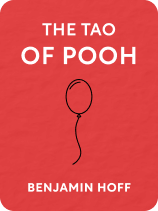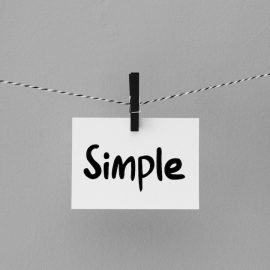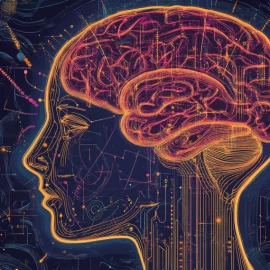

This article is an excerpt from the Shortform book guide to "The Tao of Pooh" by Benjamin Hoff. Shortform has the world's best summaries and analyses of books you should be reading.
Like this article? Sign up for a free trial here .
What does “the empty mind” mean in Taoism? How does it relate to The Great Nothing and Winnie-the-Pooh?
The empty mind is a Taoist practice of bringing stillness to your mind. It is also known as The Great Nothing.
Read more about the empty mind and The Great Nothing.
Principle 6: The Empty Mind
In Taoism, nothing equals something, and what we actually think of as something is nothing. Taoists call this T’ai Hsu, or “The Great Nothing,” which represents being able to see what’s in front of you when you’re not busy looking for something else. This idea is also known as the empty mind.
When the mind is full, there is no room for what simply is to exist. A full mind cannot hear or see clearly because knowledge and cleverness divert your focus to unnecessary aspects of things. You seek more than what is actually there or what needs to be there, which leads you down a path away from truth. Think of a bird singing. An empty mind hears the bird and enjoys the beautiful sound. A full mind will try to determine what kind of bird it is. Knowledge and cleverness will seek a way to validate the song, rather than simply allow it to exist.
The truth of a thing is found within it. With the empty mind, you can see it, marvel at it, and acknowledge the usefulness of it. This is because emptiness in the mind triggers your spiritual energy. In this place, you are in tune with the natural order of things.
Emptiness is a difficult proposition for many people because it seems closely linked to loneliness. As a society, we do everything we can to escape loneliness. We schedule every second of our days, fill up vacant and open spaces of land, and turn on the TV for company. We dismiss the value of aloneness and empty spaces, so we fight against them. But the more we fight loneliness, the more isolated we become, and the cycle goes round and round.
Achieving Wisdom Using the Empty Mind
Wisdom differs from knowledge. The latter strictly deals with information stored in the brain, whereas the former relates to the full scope of understanding beyond mere information. The brain has the capacity to create, store, and compartmentalize information faster and more efficiently than any high-tech computer on the market, but this is not the extent of its power. The brain is capable of so much more, and only using it for knowledge is like using a magic wand to prop open a window.
Lao-tse said, “To attain knowledge, add things every day. To attain wisdom, remove things every day.” To truly start a journey toward wisdom, you must allow the mind to clear so the avenues to its other powers can be revealed. Therefore, the path to wisdom is the path of nothing.
Think about your last big idea, something others might refer to as a “stroke of genius.” Where did the idea come from? Likely, if you trace it all the way back to the beginning, you’ll find it came from nothing. Most of these revolutionary ideas are not born from laboring over information. They come during moments when you forgot to be thinking about something else, like when you first wake up. But you don’t have to wait for these moments to sneak up on you. You can create them intentionally using the childlike mind.
The Childlike Mind
The goal of the childlike mind is to allow the brain to achieve the same freedom it had when you were curious and observant. It is different from the empty mind. As a child, you didn’t know enough to structure the world into knowledge capsules, so you were open to playing and learning with abandon. When you moved into adulthood, you used your experiences, abilities, education, and social conditioning to inform life decisions and explain the world around you. This tendency moved you farther from wisdom.
Many believe that brain development ends with adulthood, but the final destination of the mind is the independent state of the all-seeing child. This type of mind has been drained of the minute particulars of acquired knowledge and left open to the wisdom of nothing, or the way of the universe. In this state, the mind is filled with light and joy because it is in line with the natural powers of the world.
The saga of Pooh’s adventures with his friends comes to an end when they stroll through the forest searching for nothing and no one. They come upon an enchanted forest atop a mountain where the whole world can be seen and felt. This place is always there for you to find if you can follow the path of nothing to nowhere. The enchanted place is inside you. You just need to stop looking for it.

———End of Preview———
Like what you just read? Read the rest of the world's best book summary and analysis of Benjamin Hoff's "The Tao of Pooh" at Shortform .
Here's what you'll find in our full The Tao of Pooh summary :
- How Winnie-the-Pooh perfectly models the principles of Taoism
- The 6 principles of Taoism reflected in Pooh's adventures
- How to become Winnie-the-Pooh and unlock a magic inside of you






